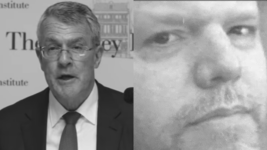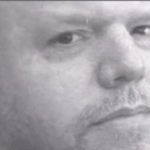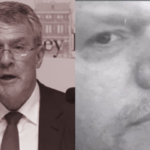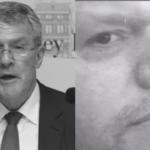Despite Promising to Save Whistleblowers, Labor Has “Undeniably Declared War on” Them

Independent member for Clark Andrew Wilkie put it to attorney general Mark Dreyfus on the final sitting day of federal parliament for 2024 that the Albanese government “has undeniably declared war on whistleblowers”, and he questioned whether the nation’s chief lawmaker would progress the major overhaul of the law this current term, as he’d promised prior to the last election.
The parliamentary year drew to a close last week, and with another election looming early next year, the prospect that Wilkie’s line of questioning raised was that the AG may avoid delivering on the substantial redrafting of the Public Interest Disclosure Act 2013 (Cth) (PID Act) this term, despite having promised otherwise.
Wilkie’s query was further prompted by a whistleblower prosecutions saga that’s now in its seventh year, which involved then AG Christian Porter overseeing the launch of prosecutions against three disclosers and one lawyer circa 2018, as once these men were in need of the promised legislated protections to support them, they all found that 2013 PID laws provided none.
Dreyfus further stated that Wilkie and others know that he’d already progressed initial PID Act amendments in mid-2023 to facilitate the establishment of the now deceased dog known as the National Anti-Corruption Commission (NACC), but, as the AG explained himself in late 2022, these changes were ahead of the major overhaul that he’d be introducing during the year that just ended.
Unsurprisingly, the chief lawmaker overlooked Wilkie’s questions regarding the missing PID reforms and instead, he went on to wax lyrical about the triumph that the PID Act has become. Dreyfus drafted the PID Act during his initial stint as AG back in 2013, and despite this legislation having been widely recognised as lacking by himself and others commentators, the major holes in it still remain.
Major overhaul pending
In the dying days of the Morrison government, the campaign against whistleblower, or political, prosecutions was substantial, as the Coalition had lined a group of disclosures up against a wall, as it sought to publicly punish them, as an example to all other would be whistleblowers.
Those targeted comprised of former ASIS agent Witness K, his barrister Bernard Colleary, ex-ADF lawyer David McBride and Australian Taxation Office whistleblower Richard Boyle. And the Liberal Nationals were lucky enough to have a legislative basis to proceed with this witch hunt.
“I was quite conscious that it was not a perfect scheme,” Dreyfus told the Canberra Times in October 2021 in regard to the framework set out in the PID Act. “It was an appropriate scheme but needed to be in operation for some years and then be reviewed.”
“It was shameful that the government took some four years to respond to Philip Moss’ report,” the AG continued, in respect of the findings of the 2016 statutory review of the PID Act, which made 33 recommendations to improve Dreyfus’ legislation.
“We intend, in government, to act on Philip Moss’ recommendations for necessary improvements to the public interest disclosure scheme.”
In his response to Wilkie last week, Dreyfus further explained that it was regrettable that “the former government failed to act on that 2016 review by Mr Philip Moss”. However, he continued, “We did act. This was the first significant public sector whistleblower reform since the Public Interest Disclosure Act was first enacted a decade ago.”
The PID Act was significant on enactment as prior to that there had been no federal “legislation to protect whistleblowers within the Australian government public sector”.
Yet, by the time Dreyfus retook office, he and other experts all agreed that the law was wanting and while the 2023 NACC facilitating amendments did progress 21 of the 33 Moss recommendations, the major overhaul is still yet to happen.
Speaking out of turn
“If I could say something generally about the way in which the member for Clark, and a number of other people, approach the question of the operation on the Public Interest Disclosure Act: before 2013 the Commonwealth had no protection for whistleblowers at all,” Dreyfus spoke up in defence of his decade-old legislation on the last sitting day of the year.
“A Labor government legislated a scheme of whistleblower protection in 2013,” continued the chief lawmaker. “To take the last year alone, there were 684 public interest disclosures. So far from the situation being that there isn’t protection for whistleblowers in the Commonwealth public sector, as the member for Clark… would apparently wish to suggest, there is protection for whistleblowers.”
The fact that over 600 government public sector employees were able to blow the whistle this year, without any hassles simply means they were able to make disclosures internally and the matters were either cleared up or the employee forgot about it, as it’s really only after a whistleblower has gone to the press and charges have been laid against them that the PID protections ever get tested.
The AG then suggested that Wilkie, a renowned whistleblower in his own right, “should be doing more to create the culture in which there is an understanding of” the scenario that he’d just suggested: that every one of this year’s 600-odd whistleblowers would be supported and protected in going to the press and publicly revealing government wrongdoing if not first rectified internally.
Protecting whistleblowers
Former ASIS agent Witness K revealed information about regarding the Howard government having allegedly bugged the Timor-Leste cabinet rooms in 2004, in order to gain advantage in fossil fuel negotiations it was undertaking with that nation, and K went to the press with the assistance of his ASIS-approved lawyer Bernard Collaery.
Intelligence information or information relating to an intelligence agency, however, is not disclosable under the Public Interest Disclosure Act and therefore, both men were not protected by Dreyfus’ laws in revealing this government corruption. And K went on to plead guilty to the charges against them, and in mid-2021, they were given a three-month suspended sentence.
As for Collaery, well, Dreyfus had arrived back for chief lawmaker duty on the promise of saving whistleblowers, and the newly incumbent AG then went on to drop the charges against the ACT barrister in July 2022, which was a much welcomed development amongst the movement to see the whistleblower prosecutions dropped.
The attorney general has the power to end any Commonwealth prosecution, when the office bearer considers that is what justice calls for. And this power is contained in section 71 of the Judiciary Act 1903 (Cth).
However, after exercising the discretion he has to release whistleblowers in respect of Collaery, the AG stopped with the release of the barrister, despite the charges pending against McBride and Boyle.
The main difference between Collaery and the trio of whistleblowers he was being prosecuted alongside of is that the barrister is not actually an Australian public service officer, who spoke out against his employer to expose internal wrongdoing.
Former ADF lawyer David McBride blew the whistle to the ABC mid-last decade in regard to the Australian war drive in Afghanistan having lost all bearings. And this resulted in 2017’s The Afghan Files report, which exposed special forces committing multiple war crimes. And for his troubles, David is now serving 5 years and 8 months prison time, with non-parole at 2 years and 3 months.
The PID Act failed McBride too, as when he went to argue his public interest disclosure defence in October 2022, the authorities blocked his ability to do so, via a mechanism that permits a prosecution to remove evidence on national security grounds. And a similar pattern regarding his evidence occurred at trial in November last year, which left him no choice but to plead guilty.
Last man standing
The truth regarding the PID Act is that only one whistleblower has ever argued their defence under it. This was Richard Boyle. And when he did so in October 2022, the court found that he was protected by the law, however it also found him to be unprotected.
Boyle blew the whistle on the ATO misapplying a garnishee process, which meant that agents were told to dip into small business accounts to recover debts without any notification at an earlier point in the process than was usually permitted, and this order had been done to ensure that tax office end of financial year figures looked good.
In his June 2024 ruling on Boyle’s appeal of his unsuccessful PID defence, SA Supreme Court Justice David Lovell found that the former ATO employee was protected by the criminal immunity provided under section 10 of the PID Act, when he went to the ABC and provided information that went on to inform the April 2018 report Mongrel Bunch of Bastards, after he’d made a 2017 internal disclosure.
However, despite Boyle’s internal complaints resulting in an end to the unlawful application of the garnishee process and several inquiries since having vindicated his assertion that it was being wrongfully applied, the South Australian court further found that Boyle was not protected under the PID Act, in respect of the preparatory acts that he’d undertaken in building his case.
So, Richard is now set to stand trial over 24 criminal offences that carry up to 46 years imprisonment next November. And this plethora of charges cover acts such as taking photos of taxpayer information, covertly recording conversations with his fellow employees and then uploading this information onto an email account that was never accessed.
Admittedly, Dreyfus pointed out to Wilkie last week that “the government is now progressing a second, broader stage of reforms, which includes the release of a consultation paper and public consultation on additional supports for public sector whistleblowers”.
Indeed, the November 2023 consultation paper, which relates to the pending “broader stage of reforms”, includes deliberation upon whether preparatory acts, or the same behaviour that Boyle is facing close to 50 inside for, should be protected going into the future under an overhauled PID Act.
The exchange between the AG and the member for Clark, however, has left two stark questions unanswered.
These entail whether the “broader stage of” PID reforms will be progressed this term of parliament and whether they will include protections for whistleblowers committing the same types of preparatory acts as Boyle did.
And these questions raise a third, as Boyle is set to stand trial next November, which involves whether the broader PID Act amendments will ever be progressed if Labor loses the next election early next year.
Of course, if Dreyfus does really cared about whistleblowers, as he’s repeatedly told the Australian constituency he does, he could simply exercise his section 71 power within the Judiciary Act and release Richard Boyle today, as the courts have already found it was in the public interest for him to have gone to the press and exposed government wrongdoing.







